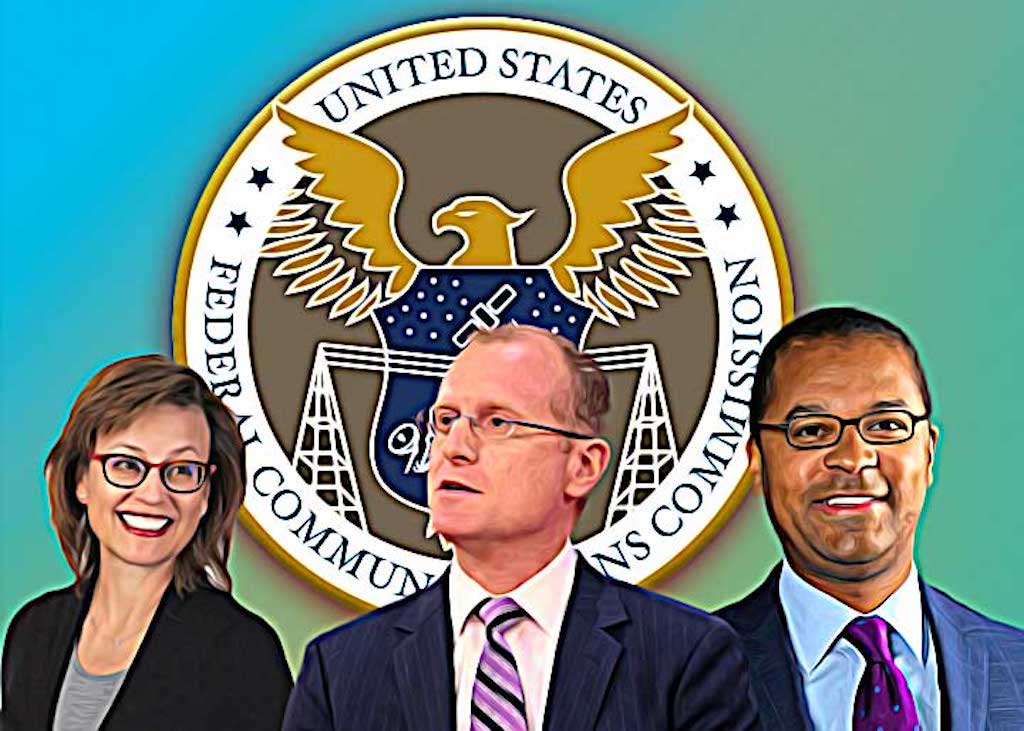Carr and Starks Confirmed, Supreme Court to Review Social Media Laws, Google Antitrust Trial
Brendan Carr and Geoffrey Starks were confirmed to an additional term on the Federal Communications Commission.
Hanna Agro

October 2, 2023 – Brendan Carr and Geoffrey Starks will serve another term as commissioners on the Federal Communications Commission following a unanimous vote from the Senate this weekend.
With Carr and Starks to continue serving, the FCC will have full membership for the foreseeable future, after Anna Gomez was confirmed as the fifth commissioner in September, breaking the agency’s party deadlock.
In a statement about the appointments, Sen. Maria Cantwell, D-Wash, underlined that it is crucial for the FCC to be equipped with a full staff to avoid “deadlock or delay.”
“Today’s confirmation of Geoffrey Starks and Brendan Carr allows the FCC to have full membership and move forward,” added Cantwell.
The commissioners received congratulatory remarks from FCC Chairwoman Jessica Rosenworcel as well. “With a complete Senate-confirmed Commission, the FCC is now ready to take on our full slate of work and fulfill our commitment to ensuring Americans everywhere have access to the best, most reliable communication services in the world,” said Rosenworcel.
Supreme court to review social media laws in Texas and Florida
The Supreme Court on Friday announced it will look into whether social media laws in Texas and Florida, which limit the ability of technology platforms to moderate certain content, violate the First Amendment.
In 2021, two social media laws were signed in both Texas and Florida, which allowed users to take legal action if they were censored online and prohibited the suspension of political figures‘ social accounts, respectively. These laws were challenged by tech associations NetChoice and the Computer and Communications Industry Association, who claimed they were unconstitutional. The discrepancy in outcomes likely led to the Supreme Court’s decision to accept review of the case.
In Florida, it was argued that “the legislation compels providers to host speech that violates their standards – speech they otherwise would not host – and forbids providers from speaking as they otherwise would.” The law was ruled by the 11th Circuit Court to be unconstitutional.
In Texas, the tech associations’ similar lawsuit was filed, but the Fifth Circuit Court held that that the law was not unconstitutional. It did not reverse a previous stay, meaning that the law has not gone into effect pending Supreme Court review.
Solicitor General Elizabeth Prelogar had urged in August that the Supreme Court look into the discrepancies between the case outcomes and argued that social platforms are protected by the First Amendment when they moderate content.
Microsoft dismisses Google claim of ease of search engine switching
Microsoft CEO Satya Nadella testified Monday in Washington that Google’s claim that it is easy for users to change the default search browser on their devices is not that simple.
Nadella argued that it is most difficult to change the default search browser on a smartphone, thwarting a claim by Google, which was sued by the Federal Trade Commission over its alleged dominance in the search engine space.
The Department of Justice, which represents the FTC in court, filed the initial lawsuit in 2020 alleging Google has made a series of illegal agreements with phone manufacturers and wireless service providers to make it the default search engine. The trial began last month.
Nadella added that Microsoft was “rebuffed” when it tried to make Bing, Microsoft’s search engine, the default on Apple smartphones.
Google has argued that the popularity of its search engine is because of the quality of the product, not any illegal activity. The company currently has a 90 percent market share on search engines in the United States.
It has argued that all its agreements are legal and it did not hamper other companies from developing their search engines.









Member discussion